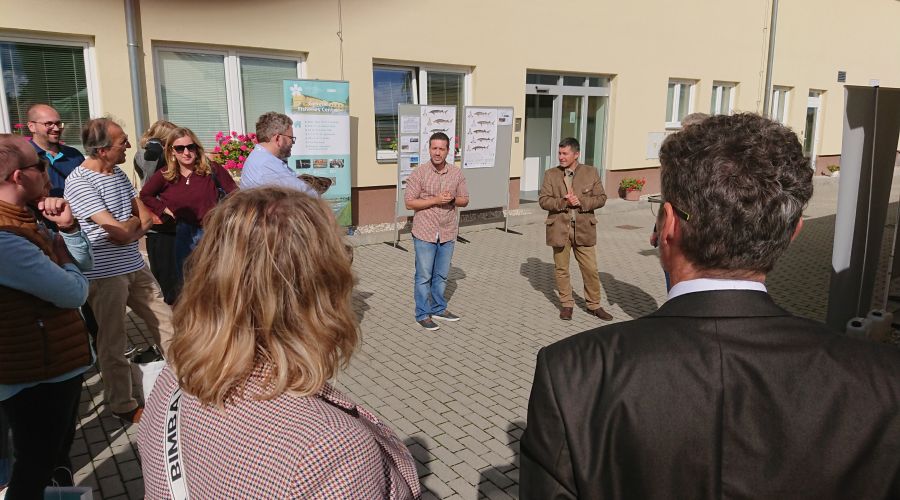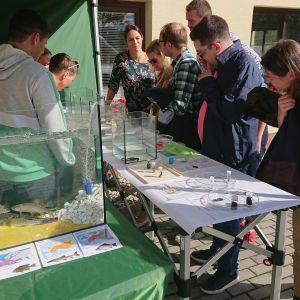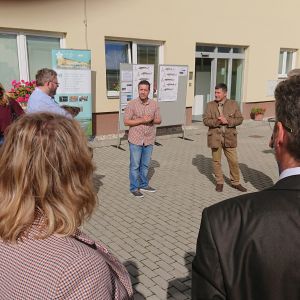Representatives of the Attachés for Science and Research of the EU Member States visited the CENAKVA Research Centre in South Bohemia

The CENAKVA Research Centre has recently attracted a great deal of interest from representatives of European institutions. In the context of the Czech EU Presidency, representatives of national ministries and departments for science and research visited the Faculty of Fisheries and Protection of Waters in Vodňany on Saturday 10 September. The delegation of about forty officials was welcomed by the Dean of the Faculty Pavel Kozák and the Director of the CENAKVA Research Centre Vladimír Žlábek and presented their research activities and the objectives of the infrastructure through videos and presentations. Afterwards, the group visited the Genetic Fisheries Centre, where, among other things, they saw live crayfish and sturgeons and had the opportunity to try out the work in the Germ Cell Laboratory.
One of the visitors was David Itier (Policy Officer EU Liaison Office) from France, for whom it was a first visit to a scientific institution focused on freshwater aquaculture. „French institutes are mainly focused on marine aquaculture, although we also have ponds here. But I like it here and I see great potential," he said of his visit to Vodňany.
Roman Klepetko from the Coordination Department of the Czech EU Presidency, which prepared the accompanying programme for the group of visitors, explained the reason why CENAKVA was chosen for the presentation. „This is a unique infrastructure that cannot grow somewhere near Prague or in a big city because it needs specific facilities. We wanted to go to the regions and show our European colleagues that interesting and unique things can be created there as well," explained Klepetko.
Lucia Núñez Tayupanta, Head of the European Research Area Unit at the Ministry of Education and Science, was also impressed by the South Bohemian Research Centre. The aim of her work is to motivate Czech scientific institutions to become more deeply involved in European research structures. According to her, the Czech problem is low participation in European programmes. On the other hand, when some institutions do get involved, they have a high success rate. „I don't have much information about CENAKVA yet, but at first sight it seems that you are successful and you are making connections with the European area, which I consider essential," said Lucie Núñez Tayupanta. She sees the multidisciplinary approach to aquaculture as promising. It is not possible to stick to certain, narrowly defined topics and wait for funding to be made available for research through grant calls. It is much more important to look for links to other, related topics such as sustainability, water quality, new 'green' technologies. „In this respect, CENAKVA seems to be moving in the right direction," she says. In this context, he mentions the so-called European missions, portfolios of research and innovation actions with a major impact on people's daily lives.
Táňa Hálová-Perglová from the Permanent Representation of the Czech Republic to the EU also mentioned the importance of the "missions" during the meeting. The programme for 2023-2024 is already being prepared, and if CENAKVA does not want to remain on the sidelines, South Bohemian researchers and managers should certainly be active now," Hálová-Perglová concluded.
Written by Miroslav Boček


